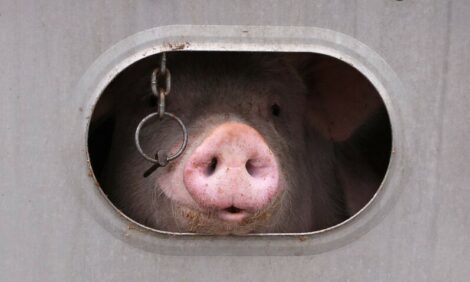



Animal Feed Industry 'At Risk' Says Rabobank
NETHERLANDS - Rabobank has reduced its forecast for global 2010/11 wheat output by almost 35 million tonnes to just over 644 million tonnes.Now that President Putin has announced a ban on Russian wheat exports, Rabobank has downgraded its forecast for 2010/11 global wheat production, according to Rabobank. In a 'Wheat Special' report this week, the bank's Food & Agri commodities experts forecast global production to reach 644.2 million tonnes, down 34.6 million tonnes on 2009/10 levels. Earlier this week the World Food Organisation expected annual global production to reach 651 million tonnes.
The recent rise in global wheat prices is widely attributed to the production setbacks in the European Union, Canada and, most importantly, Russia and the Black Sea region. Russian wheat production forecasts were reduced substantially in recent weeks as the worst drought in over 100 years decimated the spring wheat crop.
These conditions have forced Rabobank to downgrade its Russian wheat production forecast to 45 million tonnes, a full 15.8 million tonnes or 25 per cent below 2009/10 production.
Animal feed industry at risk
The dry conditions in Russia have affected not only wheat production but total grain production as a whole. Grain production forecasts have been revised down from 95 million tonnes in May to between 70 and 75 million tonnes, with some experts predicting a fall to as low as 65 million tonnes.
Doug Whitehead, Commodities Analyst at Rabobank's Agri Commodity Markets Research department, said: "If the Russian grain market goes into deficit this will significantly impact the animal feed industry in Russia. Total grain usage for animal feed is now approaching 40 million tonnes and demand is still growing. We believe that the low feed grain availability has been the primary driver behind the calls to bank grain exports."
Wheat exports to Middle East and North Africa
In the last few years, Russia has become an extremely important low-cost major wheat exporter, reports Rabobank. Regions like North Africa and the Middle East have become increasingly reliable on Russian supplies to fill their own wheat deficit. According to the 'Wheat Special', Russia currently has around 6.5 million tonnes of wheat exports booked for 2010/11 delivery. Rabobank had originally expected Russian wheat exports to total an already-reduced 9.0 million tonnes, however this figure will have to be revised down further.
Mr Whitehead added: "While the ban allows traders to legally renege on current export commitments through force majeure, some commercial parties have criticised the timing of the action. The export ban has effectively forced the cancellation of around 4.0 to 4.5 million tonnes of exports and seriously damages Russia's reputation with its major customers."







